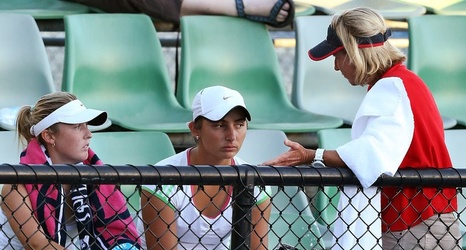Despite hints of change — such as Amélie Mauresmo’s recent tour of duty with Andy Murray — female coaches remain exceedingly rare in pro tennis.
This is not just true in the men’s game.
When the WTA Finals begin in Singapore on Sunday, not one of the eight singles players taking part in the elite, season-ending event will have a female coach. The numbers further down the pecking order are not much better. Only three members of the top 50 in this week’s WTA rankings have a primary coach who is a woman.
The issue is longstanding and complex, linked to family commitments, an entrenched male-coaching culture and the practical reality that players end up with male coaches because they prefer male hitting partners — and it is more budget-conscious to hire one person to do both jobs.
